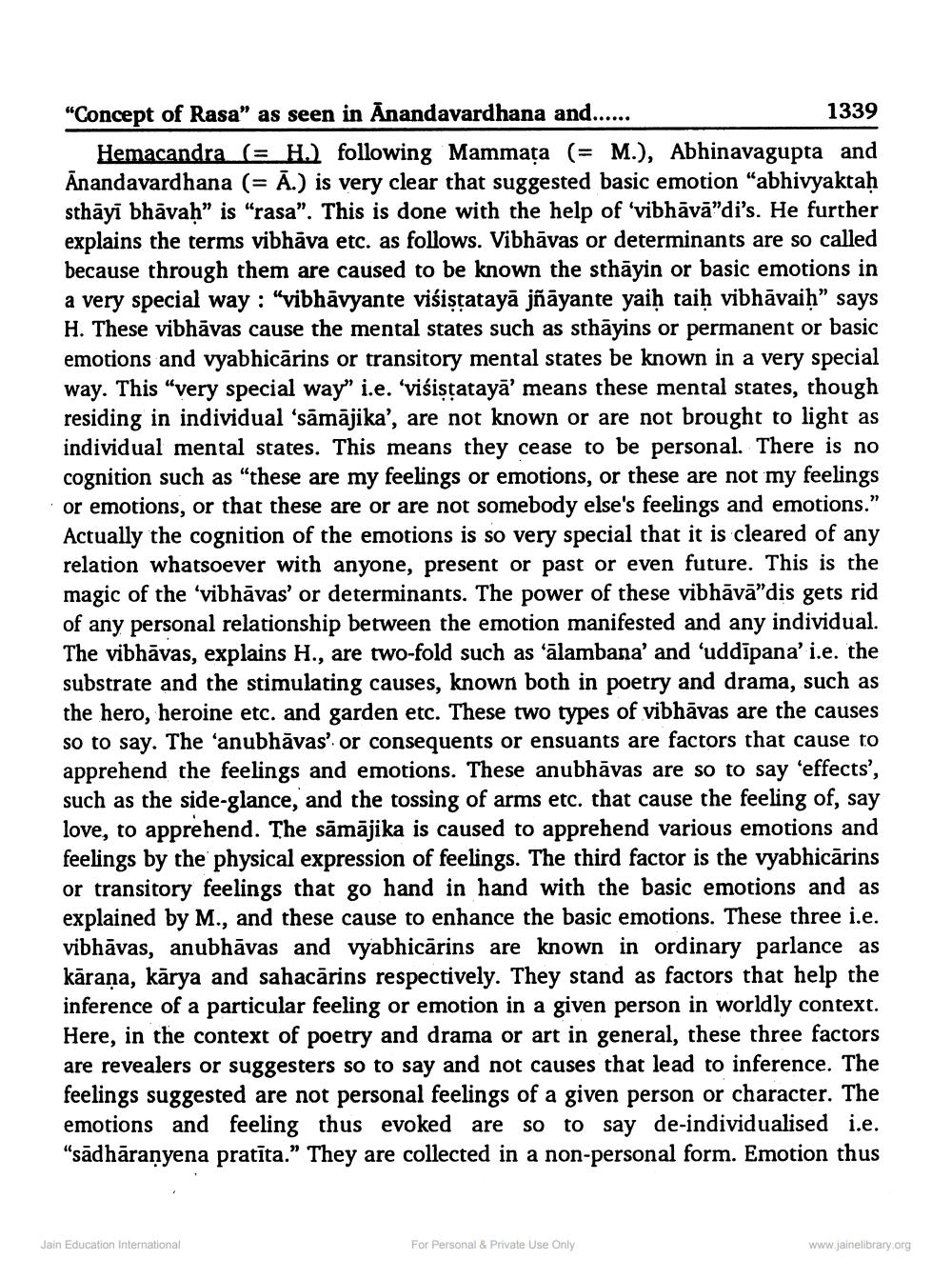________________
"Concept of Rasa" as seen in Anandavardhana and......
1339 Hemacandra (= H.) following Mammața (= M.), Abhinavagupta and Anandavardhana (= A.) is very clear that suggested basic emotion "abhivyaktah sthāyi bhāvah" is "rasa". This is done with the help of 'vibhāvā"di's. He further explains the terms vibhāva etc. as follows. Vibhāvas or determinants are so called because through them are caused to be known the sthāyin or basic emotions in a very special way : "vibhāvyante viśistatayā jñāyante yaiḥ taiḥ vibhāvaih” says H. These vibhāvas cause the mental states such as sthāyins or permanent or basic emotions and vyabhicārins or transitory mental states be known in a very special way. This “very special way" i.e. 'visistatayā' means these mental states, though residing in individual ‘sāmājika', are not known or are not brought to light as individual mental states. This means they cease to be personal. There is no cognition such as "these are my feelings or emotions, or these are not my feelings or emotions, or that these are or are not somebody else's feelings and emotions." Actually the cognition of the emotions is so very special that it is cleared of any relation whatsoever with anyone, present or past or even future. This is the magic of the 'vibhāvas' or determinants. The power of these vibhāvā"dis gets rid of any personal relationship between the emotion manifested and any individual. The vibhāvas, explains H., are two-fold such as 'ālambana' and 'uddīpana' i.e. the substrate and the stimulating causes, known both in poetry and drama, such as the hero, heroine etc. and garden etc. These two types of vibhāvas are the causes so to say. The 'anubhāvas' or consequents or ensuants are factors that cause to apprehend the feelings and emotions. These anubhāvas are so to say 'effects', such as the side-glance, and the tossing of arms etc. that cause the feeling of, say love, to apprehend. The sāmājika is caused to apprehend various emotions and feelings by the physical expression of feelings. The third factor is the vyabhicarins or transitory feelings that go hand in hand with the basic emotions and as explained by M., and these cause to enhance the basic emotions. These three i.e. vibhāvas, anubhāvas and vyabhicārins are known in ordinary parlance as kāraņa, kārya and sahacārins respectively. They stand as factors that help the inference of a particular feeling or emotion in a given person in worldly context. Here, in the context of poetry and drama or art in general, these three factors are revealers or suggesters so to say and not causes that lead to inference. The feelings suggested are not personal feelings of a given person or character. The emotions and feeling thus evoked are so to say de-individualised i.e. “sādhāranyena pratīta.” They are collected in a non-personal form. Emotion thus
Jain Education International
For Personal & Private Use Only
www.jainelibrary.org




